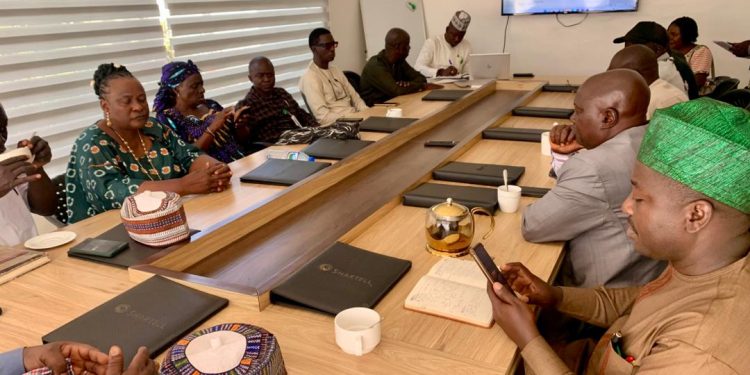The Plateau State Independent Electoral Commission (PLASIEC) organized a post-election review session with the heads of state-owned tertiary institutions to reflect on the lessons learned from the October 9, 2024, Local Government Election. The event, held in Jos, focused on assessing the participation of staff and students as ad-hoc electoral personnel.

In his opening remarks, the PLASIEC Chairman, Hon. Plangji Daniel Cishak, expressed gratitude to the participants for their unwavering support during the elections. He praised the innovative approach of involving students from state-owned institutions as ad-hoc staff but noted several challenges faced during the exercise.
Cishak highlighted key issues, including:
Inability of some ad-hoc staff to operate the Voter Verification Software efficiently. Instances where outdated app versions were mistakenly used. Use of non-standard devices by some staff. Absconding of certain collation officers during the process.
Despite these setbacks, he emphasized that these experiences serve as valuable lessons for improvement. He elaborated Performance assessment of electoral roles, Efficiency of presiding and assistant presiding officers, poll orderlies, supervisors, and collation officers.
To address these challenges, Cishak announced plans to acquire dedicated devices for the Voter Verification Software to ensure its optimal performance in future elections. He reiterated the Commission’s commitment to eliminating over-voting and election fraud through technology.

Barr. Pam Gyang Davou, PLASIEC Secretary, presented an in-depth review of the election process, which involved 23 distinct activities, including preparation, planning, by-law reviews, training, recruitment, material distribution, and Election Day activities. He commended the significant roles played by staff and students of state-owned tertiary institutions, emphasizing their contribution to the success of the election.
Clement Sekhum, Acting Rector of Plateau State Polytechnic Barkin Ladi, lauded PLASIEC for its efforts and innovative use of technology.
“After hearing the Chairman’s explanation on why the Voter Verification Software encountered challenges at some polling units, I commend PLASIEC for deploying new technology. I encourage them to further enhance this system for improved election processes in the future,” Sekhum stated.
The post-election review underscored PLASIEC’s commitment to refining its processes by addressing identified challenges and building on the successes of the October 9 election. Stakeholders left the session optimistic about the future of elections in Plateau State, with a renewed focus on technology and effective personnel engagement.









